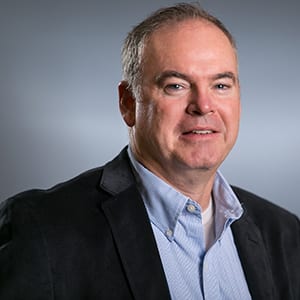Challenges aside, Oracle Cerner in key position to drive progress we need in healthcare
By Andy Flynn, President and Co-CEO

Oracle’s recent acquisition of Cerner marked the marriage of two technology giants – the global database management system and the largest software company for electronic health records (EHR). Immediately after becoming the newest big-tech company to join the healthcare “cloud wars,” Oracle introduced its aggressive plan for a national health records database, which would allow broad access to a patient’s continuously updated medical history in a central location.
It’s quite an understatement to say successfully building a national EHR database will be a monumental undertaking that has encountered many roadblocks for other big-tech companies and interoperability experts. Facilities, providers and health systems across the country use numerous disparate EHR systems that don’t communicate with each other. There are serious issues to solve regarding patient privacy and consent, data security, technical and operational challenges, and consistent approaches among providers when sharing real-time information.
Despite the obstacles to a unified EHR system – with the most important one being the need for a unique patient identifier that protects individual safety and security – the combined technological prowess and market expertise of Oracle Cerner make it well positioned to drive important changes for healthcare:
- Oracle will modernize Cerner’s systems and move them to its next-generation Oracle Cloud Infrastructure (OCI), shifting away from custom programming language while developing a solution using modern software code built natively on a cloud environment. A new generation of healthcare information systems for providers will support better treatment decisions and improved patient outcomes.
- By acquiring Cerner, Oracle’s OCI now has accumulated the largest amount of healthcare data in the world. Considering OCI’s involvement in the COVID-19 Therapeutic Learning System for the U.S. government and the National Electronic Health Record for the CDC – as well as its support of some of the world’s largest health organizations and institutions – Oracle has built an admirable depth of knowledge within healthcare.
- The ability of OCI to scale at the speed of cloud computing enables Cerner to upgrade clients from older versions of Millennium to the latest and greatest with very little impact. As the nation’s leading Cerner consulting firm with vast expertise in Millennium, we note that HPG is well positioned to support Cerner hospitals and providers in this capacity.
- As a dedicated industry business unit of Oracle, Cerner is positioned to help improve the clinician EHR experience with a primary hands-free voice technology interface, allowing providers to offer more high-quality and efficient care. Cerner systems already run on the Oracle database, so migrating and integrating OCI offerings can be accomplished quickly and seamlessly.
- The anonymized health data from a national database can be used to build artificial intelligence models to help diagnose serious diseases or identify new variants of COVID-19. The easily accessible data also can support clinical research in any location – not just at major hospitals – for improved treatments, medications and outcomes.
- Because users increasingly want control over their own information, Oracle intends to integrate telecommunications with its data storage to create a personalized portal for patients to track their health. Using smartphones and mobile/wearable data sources such as Apple Health and Fitbit, users can upload and access their most current information from OCI.
Oracle’s vision certainly is bold, but that’s exactly what the industry needs to overcome the challenges that make healthcare so difficult to navigate. At HPG, the nimble nature of our company enables us to follow suit.
Leaning on our decades of experience with Cerner, we’re prepared to pivot as their priorities and responsibilities evolve with the acquisition. HPG will continue to support Cerner hospitals with their Millennium technology. We look forward to seeing what’s next from Oracle Cerner and making our own key contributions toward healthcare transformation.


